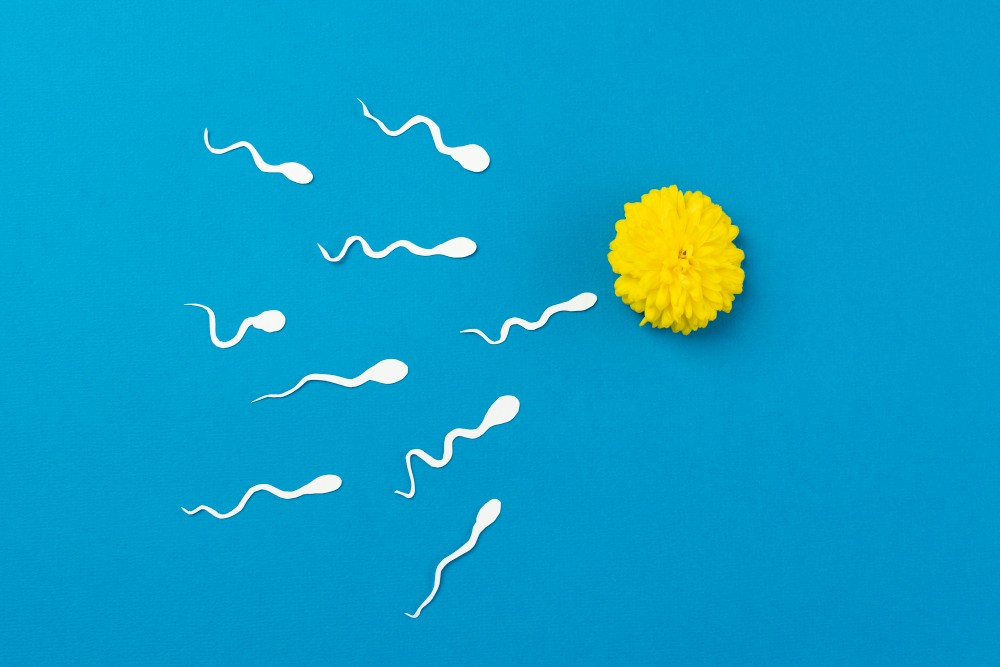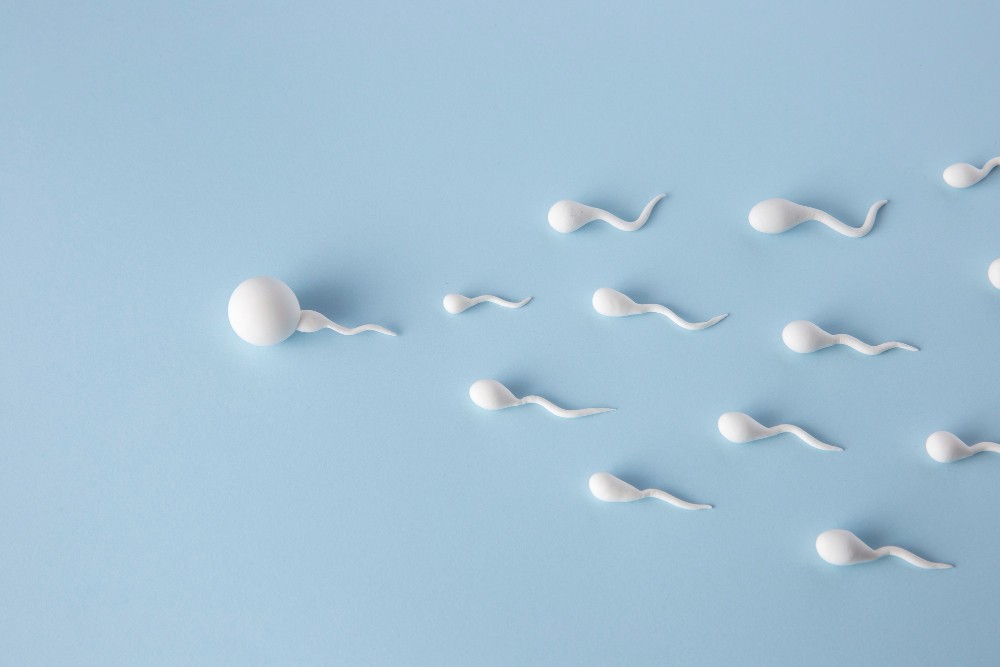Oligospermia adalah kondisi di mana jumlah sperma berada di bawah batas normal. Jumlah sperma yang rendah ini dapat berdampak pada kesuburan dan peluang untuk memiliki keturunan.
Banyak pria yang mencari solusi untuk mengatasi masalah ini. Penting untuk mengetahui berbagai pengobatan yang tersedia, sehingga oligospermia dapat diatasi dan peluang untuk terjadinya kehamilan dapat meningkat.
Cara Mengatasi Oligospermia
Oligospermia dapat disebabkan banyak hal, di antaranya gaya hidup yang tidak sehat, ketidakseimbangan hormon, dan gangguan pada organ reproduksi pria. Pengobatan kondisi ini bergantung pada penyebab yang mendasarinya.
Berikut adalah beberapa pengobatan yang disarankan:
Pengobatan medis
Pengobatan medis untuk mengatasi oligospermia dilakukan sesuai dengan penyebabnya. Terapi hormon biasanya dianjurkan jika masalah ini disebabkan oleh gangguan hormonal yang memengaruhi produksi sperma.
Dokter mungkin akan meresepkan suntikan gonadotropin untuk merangsang produksi sperma di testis. Terapi testosteron juga dapat diberikan untuk menyeimbangkan kadar hormon, tetapi hanya pada pria dengan kadar testosteron yang rendah.
Jika oligospermia disebabkan oleh infeksi pada organ reproduksi, dokter akan meresepkan antibiotik atau obat anti-peradangan. Selain itu, suplemen seperti vitamin C dan E, zinc, asam folat, serta CoQ10 dapat direkomendasikan untuk membantu meningkatkan jumlah dan kualitas sperma.
Baca Juga: Berapa Lama Sperma Bertahan di Luar Setelah Ejakulasi?
Prosedur bedah
Dalam beberapa kasus, oligospermia dapat disebabkan oleh masalah pada organ reproduksi, seperti varikokel, yaitu pembengkakan pembuluh darah di dalam kantong skrotum.
Pada situasi seperti ini, prosedur bedah mungkin diperlukan untuk memperbaiki masalah tersebut. Operasi varikokel, yang dikenal sebagai varikokelektomi, bertujuan untuk meningkatkan aliran darah di sekitar testis, sehingga produksi sperma bisa meningkat.
Perubahan gaya hidup
Selain pengobatan medis, menerapkan gaya hidup sehat juga merupakan langkah penting dalam meningkatkan kualitas dan kuantitas sperma. Beberapa perubahan gaya hidup yang disarankan meliputi:
- Berhenti merokok dan mengurangi konsumsi minuman beralkohol.
- Menjaga pola makan seimbang. Mengonsumsi makanan bergizi yang kaya akan vitamin dan mineral, seperti buah-buahan, sayuran, biji-bijian, dan protein berkualitas, dapat membantu meningkatkan kesehatan sperma.
- Berolahraga secara teratur. Aktivitas fisik yang teratur dapat meningkatkan sirkulasi darah dan mengurangi stres. Namun, hindari latihan yang terlalu berat, karena dapat menurunkan kadar testosteron.
- Menghindari suhu tinggi. Batasi penggunaan sauna, berendam air panas, atau mengenakan pakaian ketat yang dapat menghambat sirkulasi udara di area intim, karena suhu tinggi dapat memengaruhi produksi sperma.
Baca Juga: Ciri-Ciri Sperma yang Sehat
Jika semua metode di atas tidak efektif, Anda mungkin disarankan untuk mempertimbangkan teknologi reproduksi terbantu untuk meningkatkan peluang kehamilan. Beberapa opsi yang dapat dicoba meliputi:
- Inseminasi Intrauterine (IUI): Prosedur ini melibatkan penyuntikan sperma langsung ke dalam rahim untuk meningkatkan kemungkinan pembuahan.
- Bayi Tabung (IVF): Dalam prosedur ini, sel telur diambil dari ovarium dan dibuahi dengan sperma di laboratorium, kemudian embrio yang terbentuk ditanamkan ke dalam rahim.
- Intracytoplasmic Sperm Injection (ICSI): Teknik ini melibatkan penyuntikan satu sel sperma langsung ke dalam sel telur, yang dapat sangat membantu dalam kasus oligospermia berat.
Meskipun oligospermia dapat memengaruhi peluang untuk memiliki keturunan, banyak pria yang dapat meningkatkan jumlah sperma dan peluang kehamilan dengan perawatan yang tepat.
Jangan ragu berkonsultasi dengan dokter kandungan ahli fertilitas bila mengalami gangguan kesuburan atau kesulitan hamil. Memiliki pertanyaan lain seputar masalah kesuburan? Anda bisa berkonsultasi dengan dokter melalui aplikasi Ai Care yang bisa diunduh di App Store atau Play Store.
Mau tahu informasi seputar penyakit lainya? Cek di sini, yah!
- dr Nadia Opmalina
Cleveland Clinic (2024). Low sperm count. Available from: https://www.mayoclinic.org/diseases-conditions/low-sperm-count/symptoms-causes/syc-20374585
Cleveland Clinic (2022). Oligospermia (Low Sperm Count). Available from: https://my.clevelandclinic.org/health/diseases/22477-oligospermia-low-sperm-count
University of Miami Health System. Low Sperm Count and Poor Sperm Health. Available from: https://umiamihealth.org/en/treatments-and-services/fertility-center/low-sperm-count-and-poor-sperm-health
Dr. Liji Thomas, MD (2019). Causes of a Low Sperm Count. Available from: https://www.news-medical.net/health/Causes-of-a-Low-Sperm-Count.aspx
Dr. Liji Thomas, MD (2022). Low Sperm Count. Available from: https://www.news-medical.net/health/Low-Sperm-Count.aspx
Ashley Marcin (2020). What Causes Low Sperm Count and How Is It Treated?. Available from: https://www.healthline.com/health/infertility/low-sperm-count
Cleveland Clinic (2023). Varicocele. Available from: https://my.clevelandclinic.org/health/diseases/15239-varicocele
Atli Arnarson, BSc, PhD (2024). 10 Ways to Boost Male Fertility and Increase Sperm Count. Available from: https://www.healthline.com/health/boost-male-fertility-sperm-count












